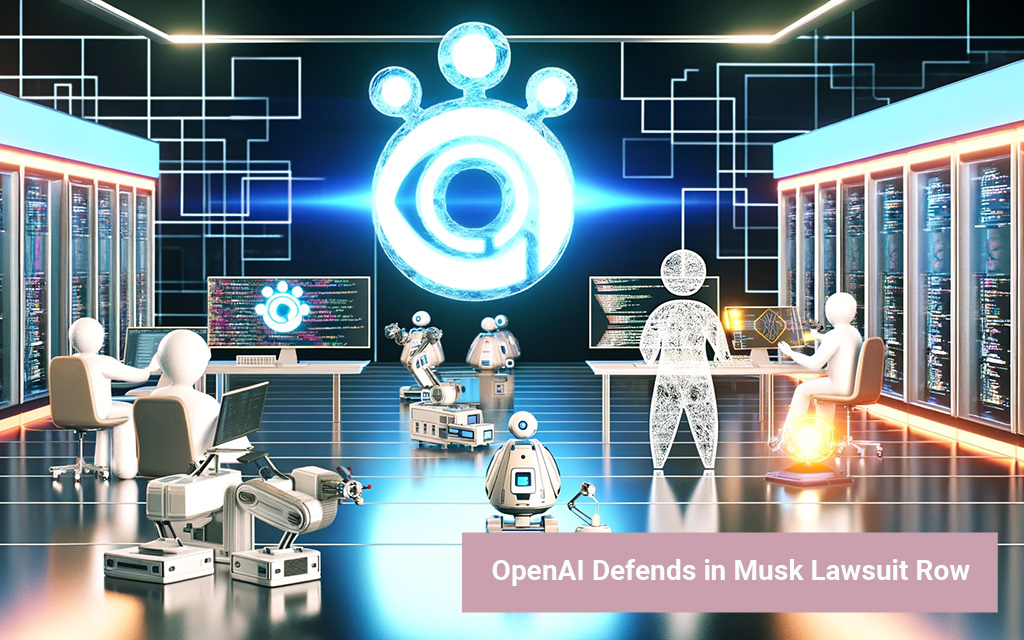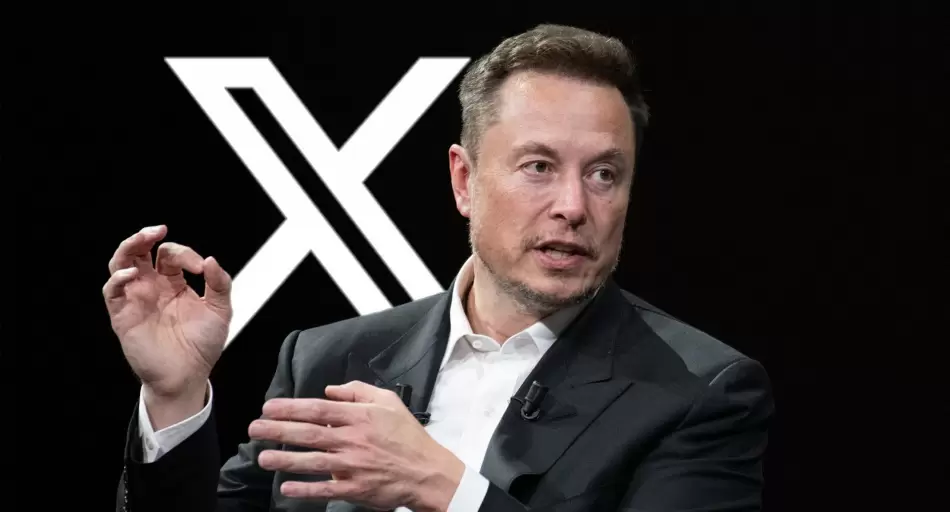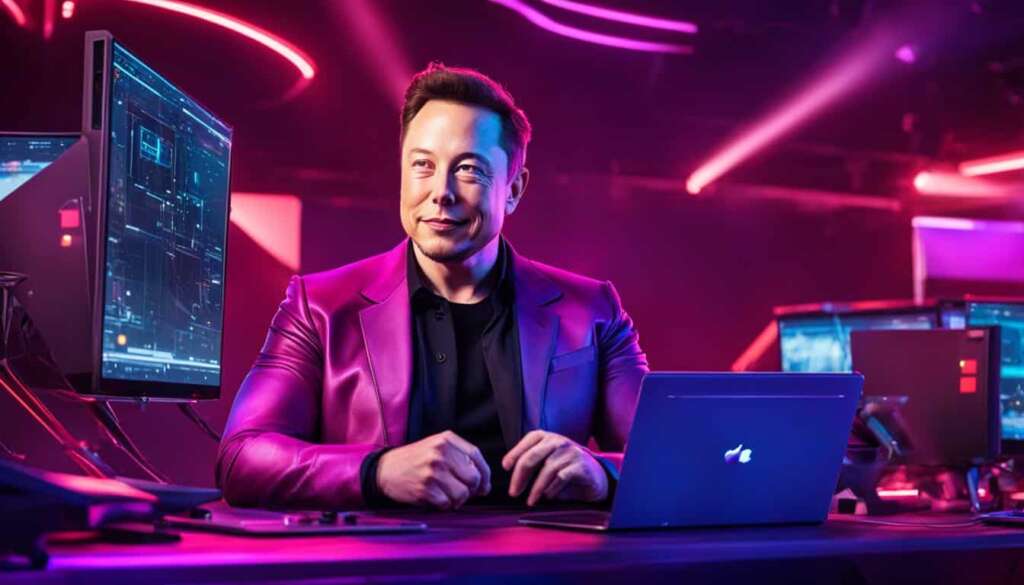Table of Contents
OpenAI, the prominent artificial intelligence research organization, is currently embroiled in a legal dispute with tech titan Elon Musk. The lawsuit centers around allegations made by Musk that OpenAI has strayed from its original mission and prioritized profit over the pursuit of public good. This legal battle raises important questions regarding AI ethics and innovation standards within the industry.
Musk asserts that OpenAI has transformed into a closed-source subsidiary of Microsoft, focusing on refining its technology to maximize profit rather than advancing open-source AI for the betterment of humanity. The billionaire entrepreneur argues that OpenAI’s latest AI model, GPT-4, is kept under wraps and serves Microsoft’s commercial interests.
However, OpenAI vehemently denies these accusations. The organization, led by CEO Sam Altman, maintains its independence from Microsoft and stands by its commitment to the original goals of developing open-source AI. Altman, expressing disappointment in Musk’s allegations, emphasizes the importance of building superior technology.
This legal battle between OpenAI and Musk holds significant implications for the future of AI development and the industry as a whole. It sparks a crucial debate on the ethics of AI development, the commercialization of AI technologies, and the control and transparency surrounding them.
The outcome of this legal dispute has the potential to shape the trajectory of AI research, startups, and enterprises. It calls for deeper reflection on the principles guiding AI development and the wider impact on society. As technology advances, finding a balance between public benefit and private gain becomes increasingly imperative.
Musk’s Allegations against OpenAI
In his lawsuit, Elon Musk alleges that OpenAI has departed from its original open-source model and is now focused on refining an AGI (artificial general intelligence) for the sole purpose of maximizing profits for Microsoft. This alleged deviation from OpenAI’s mission has raised concerns about the prioritization of profit over the greater good and the influence of Microsoft on the company’s direction.
Musk claims that OpenAI’s technology, including their latest AI model GPT-4, is being kept secret and used to serve Microsoft’s commercial interests. This closed-source approach goes against the principles of transparency and collaboration that were initially central to OpenAI’s mission. Musk’s legal team argues that OpenAI should return to its original goal of developing AGI technology for the benefit of humanity and operate in an open-source manner.
These allegations have sparked a heated legal battle, casting a spotlight on the importance of ethical AI development and the potential implications of profit maximization on the industry as a whole. The outcome of this lawsuit could have far-reaching consequences for the future of AI research and development startups, as well as the control and transparency of AI technologies.
OpenAI’s Response and Stance
OpenAI, led by CEO Sam Altman, has vehemently denied Musk’s allegations and reaffirmed its commitment to its original mission and independence from Microsoft. Altman expressed his disappointment with the lawsuit and stressed the importance of building better technology for the benefit of society.
Chief Strategy Officer Jason Kwon clarified that OpenAI competes directly with Microsoft in the AI space and remains dedicated to its original goals of ensuring that AGI technology benefits all of humanity. OpenAI aims to address any concerns about the influence of external entities and maintain its focus on the long-term impact of AI on society.
The Implications for AI Development and Industry
This legal battle between Elon Musk and OpenAI raises broader questions about the ethics of AI development and the balance between commercialization and public welfare. It underscores the need to establish clear guidelines and principles for AI research and development.
The influence of corporate entities like Microsoft and the potential monopolization of AI technologies further complicate the landscape. The outcome of Musk’s lawsuit against OpenAI has the potential to shape the future operations, transparency, and accessibility of AI startups and enterprises, prompting critical reflection on the principles guiding AI development and the impact it may have on the industry and society as a whole.
OpenAI’s Defense and Stance
In response to Elon Musk’s allegations, OpenAI CEO Sam Altman and Chief Strategy Officer Jason Kwon have vehemently refuted the claims and emphasized the company’s independence and competition with Microsoft. Altman expressed his disappointment with Musk’s assertions and reaffirmed OpenAI’s commitment to its original goals.
“We remain loyal to our founding principles and are resolute in our pursuit of building advanced AI technology for the betterment of society,” Altman stated in a recent press conference.
Altman went on to highlight OpenAI’s ongoing dedication to developing cutting-edge AI that remains free from any bias or influence. He stressed the importance of ensuring that AI technology is built with maximum transparency and ethical considerations in mind.
The Commitment to Independence and Competition
Jason Kwon further clarified OpenAI’s position, addressing concerns regarding its alleged alignment with Microsoft. He asserted that OpenAI remains fully independent and continues to compete directly with Microsoft in the AI sector.
OpenAI’s commitment to its original goals of developing open-source AI for the benefit of humanity remains unwavering, according to Kwon. He emphasized that the company’s dedication to innovation, ethical practices, and transparency have not been compromised.
As Kwon put it, OpenAI’s mission continues to be driven by a deep sense of responsibility and a vision for a future where AI is accessible and benefits all of society.
By standing firm against Musk’s allegations, OpenAI demonstrates its unwavering commitment to its principles and the pursuit of technological advancement.
| OpenAI’s Response | |
|---|---|
| Independence | OpenAI maintains its independence and operates autonomously from Microsoft. |
| Competition with Microsoft | OpenAI competes directly with Microsoft in the AI sector, fostering innovation and driving technological progress. |
| Commitment to Original Goals | OpenAI remains committed to its original mission of developing open-source AI for the benefit of humanity, prioritizing transparency and ethical practices in its AI endeavors. |
The Implications for AI Development and Industry
Musk’s lawsuit against OpenAI raises profound questions about the ethics and future of AI development. This legal battle sheds light on the ongoing debate surrounding the advancement of technology for the greater public good or purely for private gain. The allegations made by Elon Musk also bring attention to the concerns surrounding the monopolization of AI technologies by corporate entities.
The outcome of this lawsuit could significantly influence the operations, transparency, and accessibility of AI research startups and enterprises. It calls for a comprehensive examination of the principles that guide AI development and the potential impact on the industry and society as a whole.
The ethics of AI development are being scrutinized, forcing stakeholders to consider the implications of prioritizing commercialization over societal welfare. The control of AI technologies is also a central concern, as the concentration of power in the hands of a few corporations may stifle innovation and hinder fair competition.
Additionally, the issue of transparency in AI development has come to the fore. The public’s trust in AI technologies relies on understanding and knowing how they are developed and employed. The OpenAI lawsuit underscores the importance of transparency in the development and deployment of AI systems to ensure ethical practices and avoid potential abuses.
FAQ
What is the lawsuit filed by Elon Musk against OpenAI about?
Elon Musk has filed a lawsuit against OpenAI, accusing the company of deviating from its original mission and prioritizing profit over public good.
What are the allegations made by Elon Musk in the lawsuit?
Musk alleges that OpenAI has become a closed-source subsidiary of Microsoft and is refining AI technology to maximize profits for Microsoft.
How does OpenAI respond to Musk’s claims?
OpenAI, led by CEO Sam Altman, strongly denies these allegations and asserts its independence from Microsoft.
What is OpenAI’s stance and commitment?
OpenAI clarifies its operational independence, stating that it competes directly with Microsoft and remains committed to its original goals.
What are the implications of this lawsuit for AI development and industry?
The lawsuit raises questions about the ethics of AI development, commercialization, and the control of AI technologies by corporate entities.













